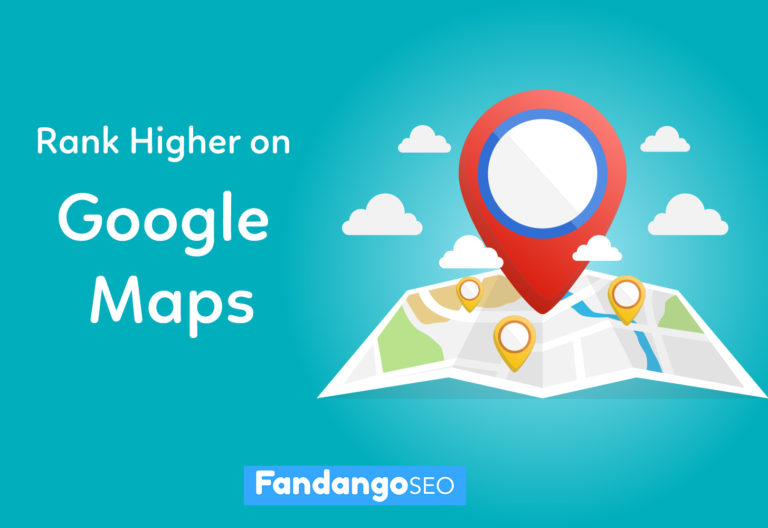In August 2018, the digital landscape buzzed with the introduction of Google’s E-A-T concept, which has since become a fundamental element in the realm of SEO. The roots of E-A-T can be traced back to Google’s publication of the Guidelines for Search Quality Assessors in 2013. However, there’s now an emerging focus on an expanded version known as E-E-A-T.
But what exactly is E-E-A-T, and why is it crucial for website ranking?
This comprehensive blog post aims to provide you with all the essential information about Google’s E-E-A-T framework. By delving into its significance, implications, and practical applications, you’ll gain a deep understanding of this influential concept.
Without further ado, let’s embark on this enlightening journey into the world of E-E-A-T!
Table of Contents
¿What is E-E-A-T?
To grasp the essence of E-E-A-T, let’s delve into the basics. The acronym E-E-A-T represents four critical factors that play a crucial role in determining the credibility and value of online content: Experience, Expertise, Authoritativeness, and Trustworthiness.
- Expertise: This refers to the depth of knowledge, skill, and proficiency possessed by the primary content creator or author.
- Experience: This newly added dimension recognizes the importance of content that reflects firsthand experience, practical insights, and personal encounters with the subject matter.
- Authoritativeness: This relates to the perceived authority, reputation, and influence of both the website and its content.
- Trustworthiness: This encompasses the reliability, integrity, and trustworthiness associated with the website, its content, and its creators.
These four factors are interwoven throughout various aspects of online content:
- The primary content creator or author of the website, whose expertise, authority, trustworthiness, and experience shape the content’s overall quality.
- The content itself, which should showcase expertise, authoritativeness, trustworthiness, and relevant experiences to provide valuable and reliable information.
- The website as a whole, including its design, functionality, reputation, and user experience, which contribute to its overall E-E-A-T profile.
While opinions may vary regarding whether E-E-A-T directly influences search engine rankings, it is undeniable that this comprehensive framework has become a significant trend in SEO. Recognizing and prioritizing E-E-A-T can help website owners and creators establish a strong online presence, gain user trust, and ultimately improve their visibility and credibility in search results.
Why is it important for SEO?
When it comes to E-E-A-T, it’s crucial to recognize that its significance varies across different types of queries. Not every search query requires an extensive consideration of E-E-A-T factors. Let’s explore an example to illustrate this point.
Imagine we’re searching for images of “beautiful hairstyles.” In this scenario, the perception of what constitutes a beautiful hairstyle can be highly subjective, even among professionals in the hairdressing industry. While expertise, authority, and reliability remain essential in many contexts, they may not be the primary focus in this particular search query.
However, let’s consider a different scenario. Suppose we’re seeking information on treatments to address significant hair loss. In this case, it becomes evident that E-E-A-T is highly relevant. The content should be authored by someone with expertise in the subject matter, published on a trustworthy website, and demonstrate sufficient authority within the field. Queries involving medical, financial, or other crucial aspects of life fall into the category of “YMYL” (your money or your life) topics. For such topics, E-E-A-T plays an indispensable role. It’s worth noting that while E-E-A-T is particularly crucial for YMYL topics, its importance extends beyond those subjects.
In essence, E-E-A-T can be understood through a logical lens. In technical and objective subjects, it’s essential to consider the E-E-A-T factors, ensuring reliable and accurate information. However, in other contexts where subjectivity or personal opinions play a significant role, E-E-A-T may have less influence on the evaluation of content.
How Google measures E-E-A-T

When it comes to assessing E-E-A-T, Google considers specific factors for each of these elements.
Let’s explore how Google measures these components:
Expertise
Expertise refers to the knowledge and skills possessed by the content creator in relation to the subject matter. As previously mentioned, for YMYL topics, such as medical or legal advice, the content should be created by individuals with formal expertise demonstrated through qualifications and credentials. For instance, an allergy website should feature information provided by a qualified allergist who possesses the necessary expertise.
In non-YMYL topics, expertise can be demonstrated through real-life experience. For example, someone who personally experiences a specific condition or situation might be better equipped to provide insights and perspectives. In cases where YMYL issues can be approached from a personal experience standpoint, such as health forums, individuals sharing their experiences can offer valuable advice. However, it’s important to note that expertise should align with the context and requirements of the topic being addressed.
Experience
Yes! I’m sure you’ve got it right. Experience means having knowledge or skills related to the subject matter of the content.
Experience is measured by who creates the content of the site. If we are talking about YMYL topics, it needs to be content created by a person with formal experience (which will be demonstrated by their preparation and credentials). For example, an allergy website must contain information given by an allergist that meets the required experience.
In topics that do not belong to the YMYL, it is a matter of demonstrating a daily experience. For example, the best person to tell how it feels to live with fibromyalgia is someone who has the disease, not the doctor qualified to diagnose it.
There are also cases in which YMYL issues can be addressed from the perspective of that daily experience. This is the case, for example, of forums for people who have a health problem in common, who can give each other advice. The difference with the example of the person with fibromyalgia is that here they are not limited to telling what they feel, but what can be done about it.
Authority
Authority refers to the reputation of the content creator, especially among other experts in the same field or influencers. If other individuals engaged in the same field, see someone as a reliable source of information, they have authority.
It is vital to analyze the content creator’s reputation. Check the users’ and experts’ opinions about a website. You can do this research by looking for references, recommendations from experts, news, etc.
Trust
We talk about trust to refer to the site’s legitimacy: the information it offers should be correct and accurate. One way to analyze a website’s reliability is to see if it indicates who created the content (which should be someone with authority, whether formal or not, depending on the subject).
When it comes to YMYL issues, the level of reliability required is higher. These sites should have contact information, just as an eCommerce.
How to improve E-E-A-T
There are several guidelines to follow to improve the E-E-A-T of a website:

Update your content
Especially when talking about YMYL queries, the content must be kept up to date to demonstrate the site’s E-A-T. For example, think of legal issues, which are subject to constant reform, and health issues, where progress is continually made.
In the case of topics that are not part of the YMYL, this may not be crucial, but it is still vital to have the information updated.
Demonstrate Subject Matter Expertise
It is important to showcase your expertise in the specific subject matter you’re addressing. Highlight your qualifications, certifications, or relevant experience that establishes you as an expert in the field. This can help build trust and credibility among your audience.
Share Case Studies and Success Stories
Provide real-life examples, case studies, or success stories that demonstrate your expertise in action. Showcasing how you have applied your knowledge and skills to solve problems or achieve positive outcomes can enhance your perceived expertise.
Create links
Although links are not mentioned in Google’s Search Quality Evaluator Guidelines, a Google Webmaster Trends analyst named Gary Illyes has pointed out that E-A-T is mostly based on links and mentioning authorized sites.
Count on experts
That an expert writes the content is practically obligatory when we talk about YMYL topics. On other subjects, someone who has a proven experience in the subject can also bring value to your content.
Show Credentials
When it comes to demonstrating E-A-T, one should not be modest, but rather the opposite. The more merits you can show about who has generated the content, the better (studies, recognitions, awards, etc.).
Check the data
News articles and also those with scientific content must be accurate. In the rest of the subjects, you should pay attention to the integrity of the information.
Get Reviews
Online reviews are used by Quality Evaluators as a source of information about the reputation of a business, relating these to the trustworthiness and authority of the site.
Provide contact information
If a business does not offer enough information to contact it, it may not seem very reliable. This primarily affects sites dealing with YMYL issues, where the user expects to find information about the author and a way to contact them in case of doubts.
Get a page on Wikipedia
Having a page in Wikipedia is not exactly an easy task. Still, if there are possibilities, it is essential to achieve it because Quality Evaluators look at Wikipedia to evaluate a site’s reputation.
Get more mentions
One way to improve authority is to get mentions in well-known sites within the sector. Again, Quality Evaluations look for these citations when analyzing a site’s reputation and who has created its content.
Final thoughts
In essence, E-E-A-T boils down to a fundamental principle: ensuring users can trust the expertise and knowledge behind the content they consume. Although it may seem complex, we can distill its essence into a simple concept.
Just as the saying goes, “You get what you pay for,” the same holds true in the realm of SEO. Investing in the expertise of a subject matter specialist is invaluable when addressing specific topics. By enlisting the services of an industry expert, you can leverage their extensive knowledge and experience to deliver high-quality content that resonates with your audience.
Remember, E-E-A-T serves as a guiding principle to establish credibility and reliability in the digital landscape. By prioritizing expertise, you not only enhance your content’s value but also foster trust among your readers. So, when it comes to creating impactful and authoritative content, consider the power of expertise and its ability to elevate your online presence.
Last Updated on May 30, 2023 by Hannah Dango




